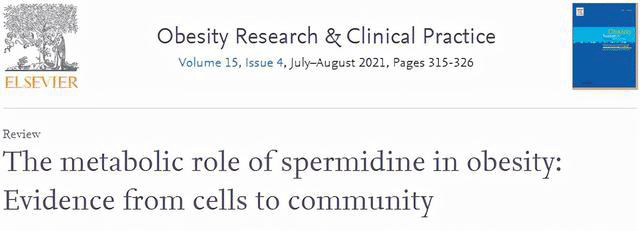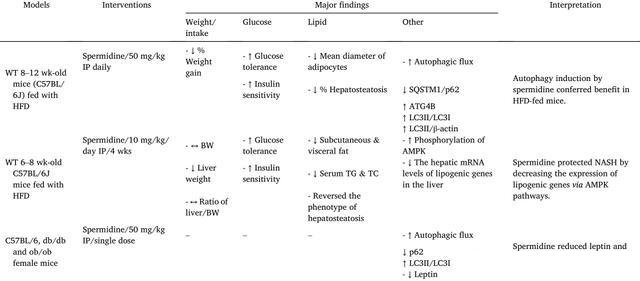Several recent studies have reported the effects of spermidine on metabolic pathways, and in animal models, spermidine can prevent diet-induced obesity. An article published in the journal Obesity Research & Clinical Practice discusses in detail the clinical research evidence for spermidine in obese conditions.

Several in vivo studies have shown that overexpression of SSAT, a rate-limiting enzyme in polyamine catabolism, prevents diet-induced obesity. Epidemiological studies have found that spermidine-rich foods are associated with lower rates of cardiovascular disease, supporting the theory that spermidine is beneficial in treating obesity.
Also in in vitro studies, spermidine can alter the biochemical composition and gene expression of mouse primary hepatocytes, fibroblasts and adipocytes, promote glycolipid metabolism, and play an important role in energy homeostasis metabolism in many cell types. For example, spermidine reduced adipogenesis by increasing the phosphorylation of AMPK, while reducing the expression levels of lipogenic genes in mouse primary hepatocytes. Increasing spermidine reduces lipid synthesis in non-adipocytes, which is sufficient to suggest that spermidine helps restore metabolic dysfunction in cells.

Evidence from both in vivo and in vitro studies has consistently demonstrated that spermidine supplementation has significant metabolic benefits in diet-induced obesity. In the entanglement of wanting to eat but not daring to eat, and feeling frightened and weighing the weight after eating, diet obesity has become the old enemy of today's aesthetic trend. In the gap where weight loss tea is screaming everywhere, natural polyamines may be able to stand out!

